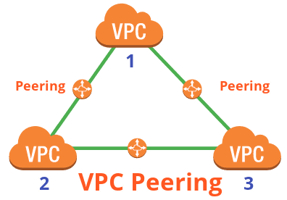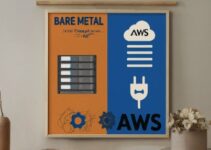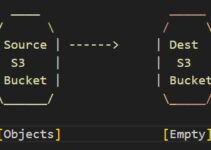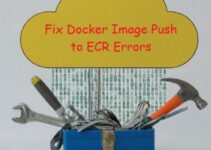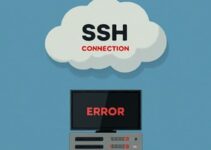In this AWS Tutorial, we’ll discover when you can plan for VPC Peering.
What is VPC Peering?
VPC Peering represents a networking connection between two VPCs that enable you to route traffic between them using a private IPv4/IPv6 address.
Instances in either VPC can communicate with each other as if they are within the same network.
When to set up VPC peering?
If you want to communicate instances that are in different VPC as the same network and you don’t want to transfer you’re your resources in two different VPCs.
VPC peering doesn’t allow transitive peering
- You can create VPC Peering between VPC1 & VPC2 and VPC 1 & VPC3, but if we try to send data from VPC3 to VPC2 it will not work. So for that, we need to create VPC Peering Between
VPC2 and VPC3. - You can create a VPC Peering connection between your own VPCs.
- VPCs must be in the same region.
- Once you create VPC Peering add it in the routing table
What will Cleanup when you delete a VPC?
Deleting VPC will also delete Objects associated with this VPC in the region
- Subnet
- Security Groups
- Network ACLs
- VPN Attachments
- Internet Gateways
- Route Tables
- Network Interfaces
- VPC Peering Connections
End of Topic. This guide you when you can plan for VPC Peering
View Other AWS Blogs…
AWS Category ListThanks for reading these articles, you’ll also like the below articles.
When to switch to a bigger RDS instance
Does it affect if we increase max connections in AWS RDS for MySQL
